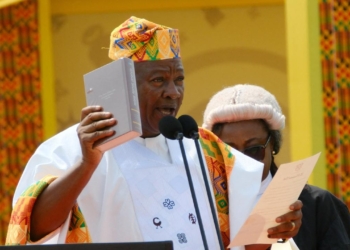Mali’s prime minister and his entire cabinet resigned following widespread condemnation over the government’s response to a massacre of some 160 people.
Prime Minister Soumeylou Boubeye Maiga’s resignation was accepted by Mali’s President Ibrahim Boubacar Keita Thursday along with the resignations of his ministers, a statement from Keita’s office said.
The statement said Maiga’s successor would be named soon and a new government would be put in place following consultations with political parties.
“The president of the republic has accepted the resignation of the prime minister and that of the government and thanked him for his loyalty and his high sense of duty,” the statement said.
Par lettre datée du 18 avril 2019, le Premier ministre Monsieur Soumeylou Boubèye Maïga a présenté au Président de la République sa démission ainsi que celle des membres du Gouvernement, conformément à l’article 38 de la Constitution.
Le Communiqué de la Présidence pic.twitter.com/FOFswcQKyL
— Presidence Mali (@PresidenceMali) April 18, 2019
Mali has been attempting to curb violence in the country since 2012 when Al-Qaeda-connected Islamists seized the country’s northern desert area, the BBC reported.
The military has attempted to drive them out, but jihadists have moved from the country into more populated areas.
The government then came under renewed and strong pressure to do something about the increase in violence on March 23 following the massacre of 160 Fulani herders in central Mali.
The government blamed ethnic Dogon hunters for killing the Fulani herders in the village of Ogossagou Peulh while ordering the group to disband.
Maiga told state-run broadcaster ORTM a day after the attack that the government had taken “strong measures” in response to the massacre, specifically dismissing high-ranking military officials.
In response, tens of thousands of people took to the streets of Mali’s capital of Bamako to protest the massacre and the recent uptick in violence against the Fulani.
There are some 3 million Fulani in Mali and they have repeatedly demanded more government protection as they have often been the targets of attack.


